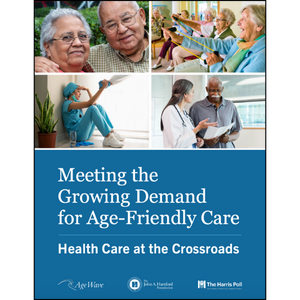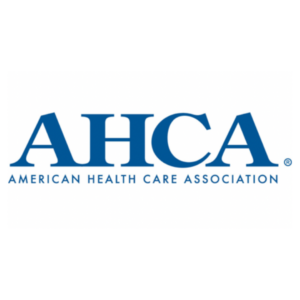CMS issues final rule with home health payment changes for 2015
Changes to the Medicare home health prospective payment system for calendar year 2015 are designed to foster greater efficiency and flexibility, improved payment accuracy and increased quality, according to the Centers for Medicare & Medicaid Services (CMS), which announced the final rule late yesterday. The alterations, effective Jan. 1, will be published in the Nov. 6 Federal Register but can be downloaded in PDF form now.
The rule implements increases to the national per-visit payment rates, a 2.82 percent reduction to the non-routine supplies (NRS) conversion factor, and a reduction to the national, standardized, 60-day episode rate of $80.95 for 2015. The national, standardized, 60-day episode payment for 2015 is $2,961.38.
Specific changes:
Face-to-face encounters. The rule finalizes three changes to the face-to-face encounter requirements for episodes of care beginning on or after Jan. 1. First, CMS is eliminating the narrative requirement currently in regulation, although the certifying physician still would be required to certify that a face-to-face patient encounter occurred and to document the date of the encounter as part of the certification of eligibility. Second, CMS is finalizing that if a home health agency claim is denied, then the corresponding physician claim for certifying/re-certifying patient eligibility for Medicare-covered home health services is considered non-covered as well because a corresponding claim for Medicare-covered home health services no longer exists. Third, CMS is clarifying that a face-to-face encounter is required for certifications, rather than initial episodes, and that a certification (versus a re-certification) generally is considered to be any time a new start of care assessment is completed to initiate care.
Therapy reassessments. CMS is finalizing the elimination of the 13th and 19th visit reassessment requirements. For episodes beginning on or after Jan, 1, at least every 30 calendar days, a qualified therapist (instead of an assistant) must provide the needed therapy service and functionally reassess the patient.
Rate-setting changes. CMS is recalibrating the home health prospective payment system case-mix weights using calendar year 2013 home health claims data to help ensure that the case-mix weights reflect the most current utilization and resource data available. Changes include Core Based Statistical Area changes for the home health wage index, changes to the home health payment update percentage, and a rebasing of the 60-day episode rate.
Home Health Quality Reporting Program update. The Home Health Conditions of Participations require home health agencies to submit OASIS assessments as a condition of payment and also for quality measurement purposes. Agencies that do not submit quality measure data to CMS will see a two percent reduction in their annual payment updates. In this rule, CMS has established a minimum submission threshold for the number of OASIS assessments that each agency must submit. Beginning in 2015, the initial compliance threshold will be 70 percent. This means that home health agencies will be required to submit both admission and discharge OASIS assessments for at least 70 percent of all patients with episodes of care occurring during the reporting period. CMS will increase the compliance threshold over the next two years to reach a maximum threshold of 90 percent.
Conditions of participation for speech-language pathologists. CMS has revised the Home Health Conditions of Participation for speech language pathologists (SLPs). Now, a qualified SLP is an individual who meets one of the following requirements: a) has a master’s or doctoral degree in speech-language pathology and is licensed as an SLP by the state where they furnish services; or b) has successfully completed 350 clock hours of supervised clinical practicum (or be in the process of completing these hours), has at least nine months of supervised full-time SLP experience and has successfully completed an approved national examination.
Home health value-based purchasing (VBP) model. CMS will review comments on a potential home health agency VBP model that it may begin testing in calendar year 2016. The home health agency VBP model being considered would include a five- to eight-percent adjustment in payment made after each planned performance period in the projected five to eight states selected to participate in the model. CMS will seek additional comments if it decides to implement a home health agency VBP model in 2016.
“We are delighted that CMS has heard and acted upon our recommendations to eliminate the daunting physician narrative requirement in the face-to-face encounter rule,” said Val J. Halamandaris, president of the National Association for Home Care & Hospice (NAHC). “NAHC will continue fighting for the industry to get relief for past claims denied, since this change only applies starting Jan. 1.”
Halamandaris also said he was pleased that CMS modified requirements on assessments regarding therapy services, which he said will “streamline the therapy reassessment standards in a manner that achieves quality of care, efficiencies and program integrity.”
About 3.5 million beneficiaries received home health services from almost 12,000 home health agencies in 2013, costing Medicare about $18 billion, CMS said. In the rule, CMS projects that Medicare payments to home health agencies in 2015 will be reduced by 0.30 percent, or $60 million. This decrease reflects the effects of the 2.1 percent home health payment update percentage ($390 million increase) and the second year of the four-year phase-in of the rebasing adjustments to the national, standardized 60-day episode payment rate, the national per-visit payment rates, and the NRS conversion factor (2.4 percent or $450 million decrease).
I Advance Senior Care is the industry-leading source for practical, in-depth, business-building, and resident care information for owners, executives, administrators, and directors of nursing at assisted living communities, skilled nursing facilities, post-acute facilities, and continuing care retirement communities. The I Advance Senior Care editorial team and industry experts provide market analysis, strategic direction, policy commentary, clinical best-practices, business management, and technology breakthroughs.
I Advance Senior Care is part of the Institute for the Advancement of Senior Care and published by Plain-English Health Care.
Related Articles
Topics: Medicare/Medicaid











